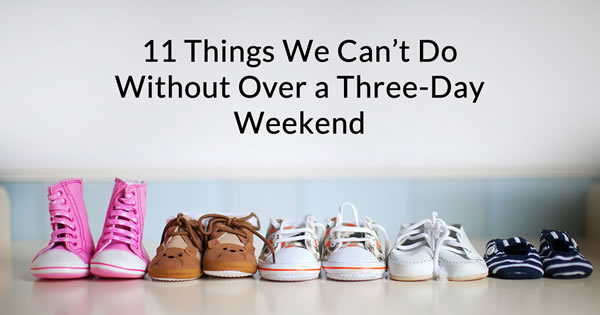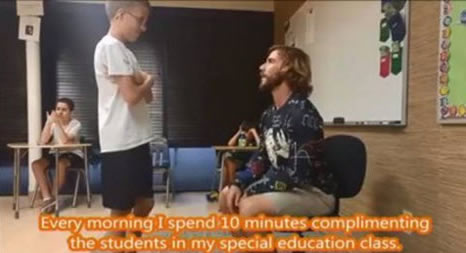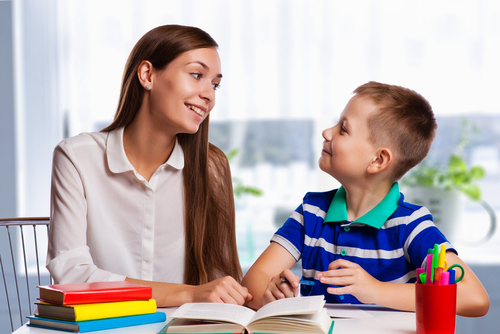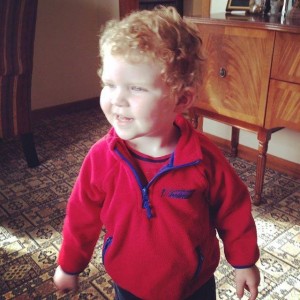The recent disturbance by a child with autism at a play on Broadway has brought something to the public’s attention that many of us have known for years. It is difficult to take our children to cultural places and performances.
Engagement with art and theater is important, however, as research shows. The ongoing addition of the Arts to the much-touted STEM curriculum in schools—to form the new STEAM (science, technology, engineering, arts, and math) initiatives—shows just how important a role Art plays in life, as well as intellectual development. Furthermore, as this article on PBS Kids points out, “Learning to create and appreciate visual aesthetics may be more important than ever to the development of…children as they grow up.”
So what are parents, grandparents and other caretakers of kids with autism to do? Take heart, that’s what, because there’s been a dramatic rise in the number of plays, concerts, exhibits and other artistic events geared specifically to children with autism and sensory processing disorders.
The Blue Men Tone It Down
Anybody who’s been to a Blue Man Group show knows that engagement in the arts can be a sensory explosion. Noise, lights, crowds—it’s like giving your child a cocktail of liver, pickles and orange juice and expecting him to keep it down. You’re just setting your child up to fail. And, while we’d all love for our children to experience the joy and exuberance of a live music show, it’s much more likely to end in tears, and possibly terror, than happiness.
But take heart: The Blue Men have recently introduced a version of their show that’s geared towards fans with autism, with their goal to provide a safe environment for those with sensory issues. Changes to their typical presentation include: reduction of their sound and light levels; available sound-reducing headphones; a subdued approach to their audience, including limiting their typical “chair walking” where they interact with the audience; and the utilization of the theater’s lobby as a calming place for families that need a break from the excitement.
Creating Musical Autists
An organization called The Musical Autist has introduced Sensory Friendly Concerts® to bring jazz and classical music to audiences who might not get to experience them otherwise, as well as a venue for musical “autists” to perform their works. The group is striving to prove the validity of community music therapy as important to the health and well-being of individuals with autism, and the community as a whole. They also want society to realize that “autistic culture” can be included and accommodated alongside neurotypical performers. The concerts are currently available in seven locales across the U.S.
Interactive, Imaginative Theater
Lincoln Center in New York City recently wrapped up a month-long run of Up and Away, an original production commissioned by Lincoln Center Education specifically for children on the autism spectrum. The production took two years to make, with the intent of creating “an environment where there’s no right way to experience the show.” As Jonathan Shmidt Chapman, the director of Up and Away explains in this video, the Trusty Sidekick Theater Company, which created and produced the play, worked with children with autism to create this wondrous spectacle: “Theater that’s made for them. Theater that can engage and enchant them. Theater that can unlock their imaginations.”
The Rose Theater in Fremont, California also just finished multiple showings of an interactive production called “A Palette of Possibility” that allows children to get up and mingle with the actors if they desire, or stay seated in one of many bean bags, stools, carpet squares, or other diverse seating offerings. Audience members are encouraged to use props, move around or even make sound effects as part of the show, which utilizes four of five senses (no taste), but nothing unexpected, jarring or loud.
Museums Go Hands-On
Museums throughout the U.S. and U.K. have begun offering special hours or exhibits specifically for individuals with autism. As an example, the Museum of London has its Morning Explorer program, open to children on the spectrum who are 13 or younger. The program opens some of the museum’s galleries one hour early on certain predetermined dates so that these children and their families can explore at their own pace.
The Museum of Fine Arts in Boston has a special monthly program titled “Artful Healing” that’s designed for 8 to 12 year-olds on the autism spectrum. The children are grouped by age and/or needs and the 90-minute class includes both exploration of the art galleries and an art activity. One adult can accompany each child for free; the fee is currently $9 for the child.
This is by no means intended as a complete and comprehensive list of arts and music programs that are autism-friendly, but instead meant to showcase the rise of autism-friendly shows, exhibits and concerts. Many movie theaters have also started hosting autism-friendly showings of kid’s movies geared specifically for children who can’t stay seated or still or even quiet for the entire time.
In order to find a program in your neighborhood, ask around or search the Web. Many programs are one-offs or have short runs. However, we can all help change that by supporting and attending them when they’re available—as the saying goes, ‘vote with your feet.’ While it can be troublesome to get your child out the door and to a show or museum exhibit, there’s a very good chance it will be more than worth it: That an introduction to the Arts will open your child’s eyes and world in ways you never imagined.
Art is that powerful.









